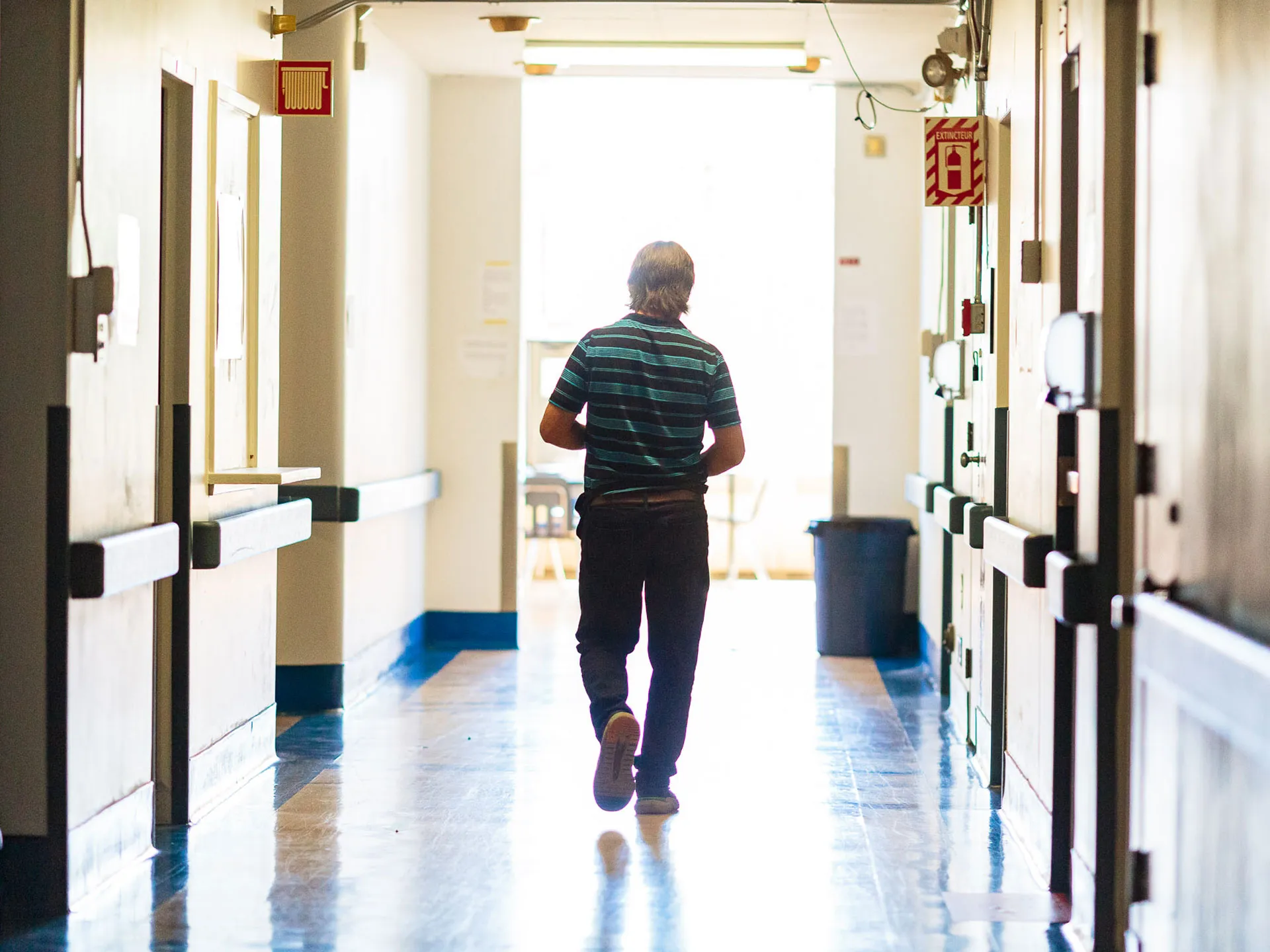
Report proposes 10 ways to prevent homelessness among people involved with the justice system

Montreal, October 10, 2023 - With Social Rehabilitation Week and World Homeless Day overlapping this year, the Quebec Homelessness Prevention Policy Collaborative (Q-HPPC) is taking the opportunity to release a report with 10 recommendations to reduce homelessness among people involved with the criminal justice system. The Q-HPPC is a partnership between the Old Brewery Mission and McGill University’s Department of Equity, Ethics and Policy.
“We need to work on systemic prevention,” says James Hughes, President and CEO of the Old Brewery Mission and co-chair of the Q-HPPC. “That means changes to the laws and policies that apply to people in the penal system.”
On September 14, the Ministère de la Santé et des Services sociaux released the results of the count of people experiencing visible homelessness conducted on the night of October 12, 2022. The report estimated that 22% of people held in provincial prisons had been homeless prior to incarceration, or had lost their housing since then. These numbers underscore the criminalization of homelessness. Researchers have previously identified release from provincial prison as a turning point on the path to homelessness. Quebec society must take action to prevent homelessness among this marginalized population.
The Q-HPPC set up a research group on judicial and correctional processes to make recommendations to the appropriate government agencies on how to prevent homelessness among people involved with the criminal justice system. Its members came from a variety of backgrounds and included lived experience experts, i.e. people who have themselves experienced homelessness and the criminal justice system. Their report, entitled La prévention de l’itinérance liée aux processus judiciaires et correctionnels : proposition de recommandations, contains recommendations that target the factors that make people vulnerable, from first contact with the police through the entire judicial process.
“There are nine recommendations in three areas: providing flexible, humane accompaniment to people throughout their judicial trajectory; improving the capabilities of the people who intervene during these trajectories; and improving service access and collaboration among the various agencies,” says Laurence Roy, co-chair of the working group, researcher at the Douglas Mental Health University Institute Research Centre and CREMIS, and associate professor in McGill University’s School of Physical and Occupational Therapy. There is also a transversal recommendation: recognize and leverage the experiential knowledge of people involved with the justice system when developing practices and policies that affect them. The task force believes that comprehensive implementation of the 10 recommendations would significantly reduce homelessness related to judicial and correctional processes.
“Access to secure housing is a crucial element in the social rehabilitation of people leaving the prison system,” says James Hughes. “Rehabilitation is extremely difficult for someone living on the streets. People who are unhoused after release from prison are more likely to reoffend. Avoiding homelessness is a win not just for people involved with the criminal justice system but for society as a whole.”
Art Campbell (Regional Director, The YMCAs of Québec, Social Reintegration and Inclusion Sector), Laurence Roy (Associate Professor, School of Physical and Occupational Therapy, McGill University) and Anne Crocker (Director of Research and Academics, Institut national de psychiatrie légale Philippe-Pinel) co-chair the Q-HPPC’s justice and corrections research component. The group includes members from police services, correctional services, judicial services, psychosocial services in detention and in the community, housing and community accommodation, and the research community: Anne-Marie Blanchet, Hugo Hang Hong, Isabel Gervais, Josée Gosselin, Karine Morneau, Marie-Eve Desjardins, Marjolie LaTulippe, Rodely Jean-Gilles, Rudy Escoffier and Véronique Lejour.
Dernières nouvelles
-
 The Old Brewery Mission and TELUS Health for Good launch second mobile
The Old Brewery Mission and TELUS Health for Good launch second mobile -
 Homelessness in the downtown core: We must house, care and innovate
Homelessness in the downtown core: We must house, care and innovate -
 Meet Jean-François Dagenais, Vice President of Finance, IT and Facilities
Meet Jean-François Dagenais, Vice President of Finance, IT and Facilities -
 Old Brewery Mission unveils new employer brand
Old Brewery Mission unveils new employer brand -
 Another resounding success for the Ken Reed Golf Tournament: $334,091 raised for the Old Brewery Mission!
Another resounding success for the Ken Reed Golf Tournament: $334,091 raised for the Old Brewery Mission! - See all news